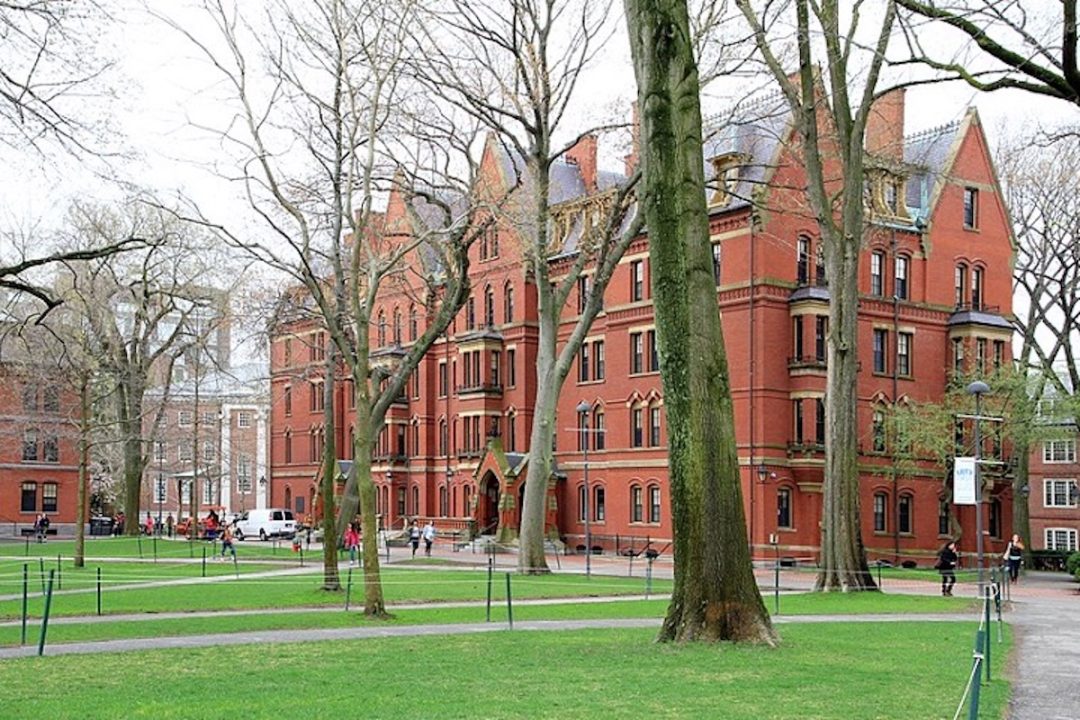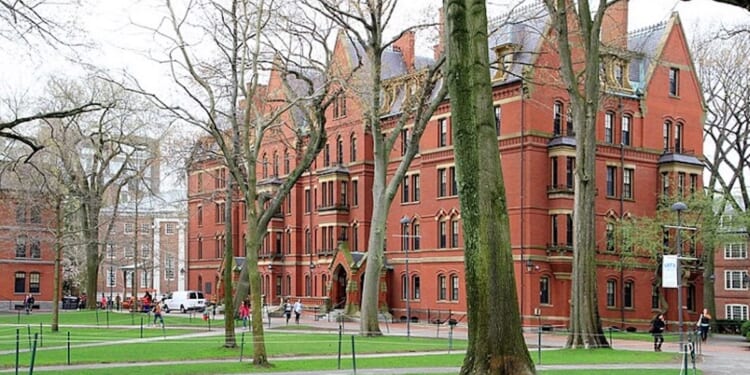
Grade inflation runs so rampant in Harvard University’s undergraduate school that practically everyone graduates with an A average, according to a new report from the school’s Office of Undergraduate Education.
“Our grading is too compressed and too inflated, as nearly all faculty recognize; it is also too inconsistent, as students have observed,” wrote Harvard College Dean of Undergraduate Education Amanda Claybaugh. “More importantly, our grading no longer performs its primary functions and is undermining our academic mission.”
The 25-page report, issued Monday to faculty and students, is a scathing indictment of a system that prioritizes students’ feelings and desires — not to mention their “diversity” — at the expense of their education.
Faking the Grade
According to the Harvard Crimson, the report “found that more than 60 percent of grades awarded to Harvard undergraduates are A’s, compared to only a quarter of grades two decades ago.”
Grade inflation isn’t a new phenomenon at Harvard. Even in 2015, graduates’ median grade point average (GPA) was 3.64. By the last academic year, it had increased to 3.83. “And since the 2016-2017 academic year,” reported the Crimson, “the median Harvard College GPA has been an A.”
In other words, all one has to do to graduate from Harvard with a nearly perfect GPA is to get admitted. That is not an easy task, of course, although it has been made easier in recent years for those who check the appropriate “diversity” boxes — which Claybaugh confessed is part of the problem:
For the past decade or so, the College has been exhorting faculty to remember that some students arrive less prepared for college than others, that some are struggling with difficult family situations or other challenges, that many are struggling with imposter syndrome — and nearly all are suffering from stress. Faculty have taken these exhortations to heart…. Requirements were relaxed, and grades were raised…. This leniency, while well-intentioned, has had pernicious effects. Not only has it contributed to grade compression and inflation; it has also undermined our educational mission. There’s been what one faculty member describes as “a radical shift from providing critical feedback to providing emotional support.” Many faculty would like to reverse that shift; they want to return to doing the hard, but necessary, work of providing real feedback. They fear, though, that students would complain, and they wonder whether the administration would, as several put it, “have their back.”
“A” for No Effort
Claybaugh told The Atlantic in August that Harvard faculty
received near-constant reminders that Harvard was admitting more students with disabilities, who’d matriculated from under-resourced schools, or who had mental-health issues. Instructors took the message as an exhortation to lower expectations and raise grades.
They did so by shifting “from high-stakes assignments to more frequent lower-stakes assignments,” replacing “exams and papers” with “creative assignments and group projects,” or even “eschew[ing] conventional grading” in favor of “systems in which students earn As for completing all assigned work,” Claybaugh wrote in her report.
She also noted that, while today’s students report working the same number of hours on coursework outside of class as their predecessors did, their instructors say they don’t see the same results. Wrote the Crimson:
Some instructors, especially in the humanities and interpretive social sciences, told her “that they’ve had to trim some readings and drop others entirely, that they’ve had to switch from novels to short stories, and that it’s difficult to keep assigning reading in the face of increasing student complaints,” she wrote.
Guaranteed A’s have led students to “largely [stop] trying in their courses,” reported The Atlantic. “They skip class at a rate that surprises even the most hardened professors.”
Club Dread
At the same time — and contrary to its alleged purpose — this grading regime has actually made students “more stressed about school than ever,” penned the magazine. With everyone getting A’s, students are terrified of getting a B, much less anything lower. On top of that:
Students now use extracurriculars to differentiate themselves from their peers. They’ve created a network of finance and consulting clubs that are almost indistinguishable from full-time jobs. To apply, students submit résumés, sit for interviews, and prepare a fake case or deliverable. At this point, the odds of getting into some clubs within Harvard are similar to the odds of being accepted to the college in the first place. [Emphasis in original.]
The result:
This hypercompetitive club culture advantages students who come from fancy high schools. Maya Jasanoff, a history professor and a co-chair of the Classroom Social Compact Committee, pointed out that Harvard devotes considerable resources to helping less-privileged students succeed academically. But that kind of assistance is useless to the extent that extracurricular clubs, which prioritize students who already have experience, are the coin of the realm.
In other words, giving everyone A’s to make “disadvantaged” students feel better about themselves only ends up making them feel worse. No wonder that, according to The Atlantic, “the percentage of first-year students who have received counseling has nearly tripled in the past decade.”
Claybaugh’s report recommended a few reforms that might improve Harvard’s grading system, but they must be approved by the faculty, which has plenty of incentive not to rock the boat.
Until serious reform takes place — namely admitting and assessing students purely on their merits — the words of the Daily Caller’s Geoffrey Ingersoll hold true. “Harvard,” he averred, “routinely graduates students without the slightest sense they’ve actually been educated.”











